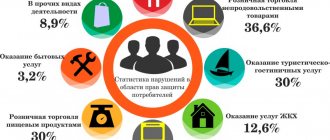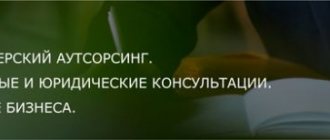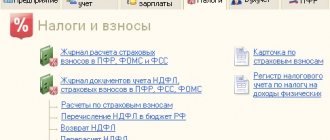Nikita Bagmet, managing partner of B&O Barristers
As many have already heard, one of the support measures aimed at saving businesses that are “dying” from the consequences of the coronavirus, the Government of the Russian Federation announced the suspension of inspections. Subsequently, this initiative was implemented in Federal Law No. 98-FZ dated April 1, 2020, Government Decree No. 438 dated April 3, 2020 (hereinafter referred to as RF PP No. 438) and some other by-laws.
In today’s post, we will briefly summarize all the latest changes in the area of inspections and help you figure out which innovations apply specifically to medical organizations. The topic is important, and therefore we will not torment you with long introductions and will immediately get to the point. Moreover, once again there were some “tricks”.
On Government Decree No. 438
Let's begin our analysis of the topic with RF PP No. 438. Looking ahead, we note that this is not the only by-law that establishes the features and relaxations of inspections in 2020, but it is the one that applies to most types of state control (supervision).
In short, RF PP No. 438 suspended most scheduled inspections in 2021 (with some exceptions). However, it should be taken into account that this Resolution does not apply to all types of state control (supervision) that can be carried out in relation to medical organizations. Therefore, we definitely recommend reading this note to the end.
What is prohibited from requesting and performing during an inspection
- check requirements that are not related to the powers of a specific executive body (the powers are specified in the regulations on..., available in the consultant);
- carry out an inspection in the absence of a legal representative of the enterprise or official or authorized representative;
- demand the provision of documents not related to the inspection, conduct research not related to the inspection;
- in the case of sampling, a sampling act (protocol) must be drawn up, one copy of which is transferred to the representative of the enterprise;
- it is prohibited to require documents before the start of the inspection; demand documents available from the state supervisory authority.
So what inspections are suspended in 2021?
According to clauses 1 and 2 of RF PP No. 438, in 2021 scheduled inspections that fall within the scope of this Resolution are suspended (we will talk about the types of controls that RF PP No. 438 covers a little later).
There is only one exception to this rule - according to clause 2 of RF PP No. 438, a scheduled inspection will still be possible if 2 conditions are simultaneously met:
- The audit is carried out in relation to a person who is not a small (medium) business or is a non-profit organization with an average number of employees in 2021 of more than 200 people;
- This person uses production facilities classified as extremely high or high risk or classified as hazard class 1 (category), hazard class 1 hazardous production facilities, hazard class 1 hydraulic structures, or a regime of constant state control (supervision) has been established for this person.
Thus, since medical organizations do not fall under at least the second condition, in 2021 they will not face scheduled inspections for most types of state control.
By the way, many people have the erroneous opinion that the moratorium on inspections established in the Russian Federation Regulation No. 438 applies only to small and medium-sized businesses. The reason for this, apparently, is the Federal Law of April 1, 2020 No. 98-FZ, which on April 1 amended the basic Federal Law of December 26, 2008 No. 294-FZ “On the protection of the rights of legal entities and individual entrepreneurs in the exercise of state control (supervision) ) and municipal control" (hereinafter referred to as Federal Law No. 294).
In particular, one of the changes to Federal Law No. 294 was Part 1.1 of Article 26.2, which declared a moratorium on certain inspections in relation to small and medium-sized businesses. However, in the same part it was established that the Government of the Russian Federation may establish otherwise. After which, on April 14, RF PP No. 438 came into force, by which the moratorium was extended to all persons, with the exception of those we wrote about just above (see clauses 1 and 2 of RF PP No. 438).
How can I view the test results?
By virtue of Art. 16 of the Law on the Protection of the Rights of Legal Entities, based on the results of the inspection, officials of the control body draw up an act in the prescribed form in two copies.
Attached to the inspection report are protocols for the selection of product samples, inspection samples of environmental objects and industrial environment objects, protocols or conclusions of studies, tests and examinations, explanations of employees of the inspected institution who are held responsible for violation of mandatory requirements or requirements established by municipal legal acts, instructions to eliminate identified violations and other documents or copies thereof related to the results of the inspection. The inspection report is drawn up immediately after its completion in two copies, one of which with copies of the attachments is handed over to the head or other official of the inspected institution against a receipt for familiarization or refusal to familiarize with the inspection report. In the absence of a manager or other official, as well as in the event of the person being inspected refusing to give a receipt for familiarization or refusal to familiarize himself with the inspection report, the act is sent by registered mail with return receipt requested, which is attached to a copy of the inspection report kept in the file of the control body .
It should be noted that approximately similar standards are established in the regulations of other control bodies.
Let us note that neither the provisions of the Law on the Protection of the Rights of Legal Entities, nor the documents regulating inspections of other bodies require preliminary familiarization of the inspected institution with the results of the inspection before signing the act.
Exclusion from the register of scheduled inspections
An important point is that decisions to exclude legal entities and individual entrepreneurs from annual plans for scheduled inspections must be made by control authorities within 7 working days after the entry into force of RF PP No. 438 (clause 3). This Resolution came into force on April 14, which means that by April 23, organizations that were included in the register of scheduled inspections for 2020 should be excluded from there.
However, we repeat once again - this applies only to those types of control that are covered by RF PP No. 438.
Unscheduled inspections remain
Despite the fact that RF PP No. 438 suspends scheduled inspections, supervisory authorities will continue to be able to appoint and conduct unscheduled inspections on the following grounds (clauses 1 and 2):
| No. | Basis of checks | Coordination of the prosecutor's office |
| 1 | Facts of causing harm to life or health of citizens or threats of harm to life or health were revealed | Required |
| 2 | Occurrence of natural and man-made emergencies | |
| 3 | Verification of compliance with a previously issued order to take measures aimed at eliminating violations that entail an immediate threat of harm to the life and health of citizens | |
| 4 | Instructions of the President of the Russian Federation, instructions of the Government of the Russian Federation indicating a specific legal entity and (or) individual entrepreneur | Not required |
| 5 | Requests from the prosecutor to conduct an unscheduled inspection as part of supervision over the implementation of laws based on materials and appeals received by the prosecutor’s office (for example, if the prosecutor’s office receives a well-founded complaint from a patient about a violation of his rights) | — |
| 6 | Receipt of an application from a legal entity or individual entrepreneur to Roszdravnadzor for the issuance of a license for medical activities | Not required |
| 7 | Request by a medical organization for Roszdravnadzor to conduct an unscheduled on-site inspection in order to establish the fact of early execution of an order to eliminate violations | |
| 8 | Verification of the execution of a previously issued order, the decision to recognize which as executed entails the renewal of a previously suspended license, accreditation or other document of a permissive nature. |
At the same time, clause 6 of Resolution No. 438 establishes that unscheduled inspections are carried out only using means of remote interaction, including audio or video communication. There are only two exceptions:
- When the departure is agreed with the prosecutor's office in the cases specified in paragraphs 1-3 of the table above;
- When the possibility of travel of officials of control bodies is provided for by order of the President of the Russian Federation, the Government of the Russian Federation or the prosecutor (this exception applies to the checks specified in paragraphs 4-5 of the table above).
Publicly available self-assessment criteria for taxpayers
In addition to the areas in which the financial and economic analysis of the enterprise’s activities is carried out, Federal Tax Service Order No. MM-3-06/ [email protected] defines a list of criteria that serve as a guide for the tax authority when deciding to conduct an on-site audit. This list includes:
- Low tax burden on the taxpayer. When assessing this indicator, tax authorities compare the tax burden of a particular organization with the average amount of tax payments transferred by enterprises operating in the same industry. The calculation of the average level of tax burden is carried out on the basis of statistical information characterizing the total volume of cash turnover in the analyzed line of activity, as well as the amount of tax contributions paid based on the results of its implementation. If the amount of mandatory payments made by a company differs significantly from the established average values, the likelihood that tax authorities will decide to conduct an unscheduled audit is extremely high.
- Working at a loss. If tax returns submitted by a taxpayer over several tax periods contain information that the company not only does not make a profit, but also does not cover its own expenses incurred in carrying out business activities, representatives of the tax service may decide on the need to conduct an unscheduled audit. However, as practice shows, tax authorities are very loyal to unprofitable companies, since usually entrepreneurs who have recently entered the market and did not have time to cover the costs incurred at the stage of launching production work to their detriment.
What about those inspections that were suspended between March 18 and April 5, 2021?
As stated in clause 9 of RF PP No. 438, inspections that were suspended from March 18 to April 5, 2021 in accordance with the order of the Government of the Russian Federation dated March 18, 2020, must be completed due to the impossibility of carrying them out no later than 3 working days after the entry into force of this resolution. The exception is unscheduled inspections indicated in the table above, as well as scheduled inspections that can be carried out on the basis of clause 2 of the Russian Federation Regulations No. 438 (we also discussed them above).
However, there is one “catch” here. The completion of inspections due to the impossibility of carrying them out is also provided for in the basic Federal Law No. 294, namely in Part 7 of Art. 12. The Federal Law includes cases where an inspection may be canceled due to the impossibility of completing it:
- Absence of an individual entrepreneur, his authorized representative, manager or other official of a legal entity;
- Actual failure to carry out activities by a legal entity, individual entrepreneur;
- Other actions (inactions) of the individual entrepreneur, his authorized representative, manager or other official of the legal entity that resulted in the impossibility of conducting an inspection.
In this case, the control body, within three months from the date of drawing up the report on the impossibility of conducting the relevant inspection, has the right to make a decision to conduct a scheduled or unscheduled on-site inspection without including the scheduled inspection in the annual plan of scheduled inspections and without prior notification of the legal entity or individual entrepreneur.
That is, in theory, there is a possibility that after canceling the inspection on the basis of clause 9 of RF PP No. 438, the control body will return to the medical organization with a second unscheduled inspection, but without prior notice. For example, if during the inspection process the supervisory authority managed to identify any facts of harm to the life or health of citizens. In this case, the supervisory authority can use Part 7 of Art. 12 Federal Law No. 294 and motivate the completion of the inspection by the actual failure of the medical organization to carry out activities during the pandemic, and later return with a repeat unscheduled inspection on the basis specified in paragraph 1 of the table that we cited above.
However, this is not the only “loophole” that control authorities can use.
The moratorium on inspections does not apply to all types of control!
It is also important to pay attention to the fact that, according to clause 5, RF PP No. 438 applies exclusively to checks that:
- They fall within the scope of regulation of the Federal Law of December 26, 2008 No. 294-FZ “On the protection of the rights of legal entities and individual entrepreneurs in the exercise of state control (supervision) and municipal control” (Federal Law No. 294);
- Refer to the types of state control listed in parts 3.1 and 4 of Article 1 of Federal Law No. 294*. An exception is tax and financial control (with regard to these types of control, the specifics of inspections are established in another Government Resolution, about which see below).
*Federal Law No. 294 does not apply to these types of state control in terms of establishing the procedure and organizing inspections. However, RF PP No. 438 still applies to inspections that are carried out within the framework of the specified types of control.
Thus, the moratorium on inspections announced in RF GD No. 438 will affect scheduled inspections carried out within the framework of the following types of state control (supervision):
- Quality control and safety of medical activities;
- Control in the field of circulation of medicines;
- Control over the circulation of medical products;
- Licensing control (there are some exceptions here, see below);
- Sanitary and epidemiological surveillance;
- Supervision under consumer protection law;
- Fire supervision;
- Insurance supervision (in particular, quality control of medical care by compulsory health insurance funds and medical insurance organizations);
- Federal state supervision over compliance with labor legislation and other regulatory legal acts containing labor law standards;
- Some other types of control (see Parts 3.1 and 4 of Article 1 of Federal Law No. 294).
At the same time, we emphasize once again that the moratorium does not apply to:
- Tax and financial control (for more details on tax audits, see below);
- Conducting administrative investigations;
- Conducting an inspection to eliminate the circumstances that served as the basis for imposing an administrative penalty in the form of administrative suspension of activities (for example, if, as a result of a previously conducted inspection of a medical organization, a penalty in the form of APD was imposed for violating licensing requirements or sanitary and epidemiological legislation);
- Carrying out some other activities specified in Part 3 of Art. 1 Federal Law No. 294.
I would especially like to highlight administrative investigations (hereinafter – AR). The fact is that there are significant differences between the AR carried out within the framework of the Code of Administrative Offenses of the Russian Federation and scheduled/unscheduled inspections carried out in accordance with Federal Law No. 294 (although at first glance they are similar). We will not go into the details of the AR now. However, we note that this provides additional grounds for carrying out control measures by medical organizations. For example, if during an inspection that was suspended in accordance with the Order of the Government of the Russian Federation dated March 18, 2020, from March 8 to April 5, an administrative investigation was initiated, it is not subject to termination, since RF PP No. 438 does not apply to issues related to the organization of AR .
In addition, RF PP No. 438 deals only with inspections. However, this is not the only form of control. Federal Law No. 294 also provides (Part 1, Article 2):
- Measures to prevent violations of mandatory requirements;
- Control measures carried out without interaction with legal entities and individual entrepreneurs.
Such events have not been suspended. Meanwhile, if violations are identified during their implementation, this may also serve as the basis for unscheduled inspections of medical organizations (Part 5, Article 8.3 of Federal Law No. 294).
However, let’s not talk about the bad, since I would like to end today’s article on a positive note.
What should you do first?
So, you learned about the arrival of the auditors in advance, and from the plans you learned about the topic of the upcoming control event.
Based on the stated topic, it is advisable to schedule an internal audit of those issues that will be checked by the control authorities. During the inspection, it will be possible to eliminate minor mistakes made by employees, or begin work to eliminate larger violations. No, we do not claim that this must be done, because some issues can already be checked, for example, as part of internal control activities. Let us remind you that in accordance with Art. 19 of the Law on Accounting [2], state (municipal) institutions, like other organizations, are obliged to independently organize and carry out internal control of the facts of economic life. Internal control is understood as a process aimed at obtaining sufficient confidence that an economic entity provides:
- efficiency and effectiveness of its activities, including the achievement of financial and operational indicators, safety of assets;
- reliability and timeliness of financial statements;
- compliance with applicable laws, including when performing business transactions and maintaining accounting records.
The procedure for implementing internal control must be enshrined in the accounting policies of the institution.
Relaxations regarding insurance supervision
We said above that the moratorium on inspections also applies to insurance supervision. In addition to RF PP No. 438, the corresponding relaxations are also contained in Decree of the Government of the Russian Federation dated 04/03/2020 No. 432, according to paragraphs. “z”, “i” clause 1 of which is suspended until December 31, 2021:
- carrying out planned medical and economic examinations and examinations of the quality of medical care by insurance medical organizations and the Federal Compulsory Medical Insurance Fund, with the exception of medical and economic examinations of medical care for oncological diseases, acute cerebrovascular accident, acute coronary syndrome, as well as medical and economic examinations based on requests from insured persons. Medical organizations have the right to decide to provide medical documentation necessary for monitoring the volume, timing, quality and conditions of providing medical care under compulsory health insurance to a medical insurance organization;
- carrying out TFOMS in a planned form of control over the activities of insurance medical organizations.
How to place auditors?
In addition to conducting an independent audit, you need to think about where to place the auditors if the audit will be carried out on the territory of the institution being audited.
In fact, this question is not as simple as it seems, because sometimes the volume of documents requested by auditors is so large that they are transported on carts, and carrying large volumes, for example, from floor to floor, is quite difficult and takes a lot of time. In addition, some authorities have special requirements for premises. So, for example, by virtue of clause 5.14.9 of the Regulations on territorial bodies of the Federal Service for Financial and Budgetary Supervision, approved by Decree of the Government of the Russian Federation of July 11, 2005 No. 89n (hereinafter referred to as Regulation No. 89n), the heads of inspected organizations are obliged to create appropriate conditions for employees of territorial bodies Rosfinnadzor to carry out control activities, namely: provide the necessary premises, office equipment, communication services, transport, office supplies, as well as provide office work.
Thus, the inspected institution should place inspectors in a separate room and, based on available capabilities, provide them with the necessary office equipment, telephone communications, and office supplies. It is also advisable to place auditors close to the audited services of the institution. In addition, if the property of the inspected organization is located in several places (there are several buildings, garages, land plots located remotely from each other), ensure that the inspectors are delivered to these objects by the institution’s transport.
Relaxations regarding tax control
Despite the fact that, as we said above, RF Regulation No. 438 does not apply to tax control, there were also some relaxations in this part. We are talking about Resolution No. 409 dated April 2, 2020 “On measures to ensure sustainable economic development,” which we wrote about in our article about tax benefits.
This Resolution suspended until May 31, 2021 (inclusive) (clause 4):
- Making decisions on conducting on-site (repeated on-site) tax audits, inspections of the completeness of calculation and payment of taxes in connection with transactions between related parties;
- Conducting designated on-site (repeated on-site) tax audits, inspections of the completeness of calculation and payment of taxes in connection with transactions between related parties;
- The timing of the registration of inspection results; making a decision on the inspection; proceedings in cases of tax violations.
- Initiating and conducting inspections of compliance with currency legislation, except for cases where ongoing inspections of compliance with currency legislation of the Russian Federation reveal violations, the statute of limitations for bringing administrative liability for which expires before June 1, 2020;
- Making decisions by tax authorities to suspend transactions on bank accounts and electronic money transfers.
In addition, clause 7 of the Resolution canceled fines for failure to provide documents and information necessary for tax control and control over the payment of insurance premiums, and also provided a number of other relaxations in terms of tax control. Additionally, these relaxations can be found in Resolution No. 438 itself and on the Federal Tax Service website.
Additional criteria established by the Federal Tax Service
In addition to the above signs, the following may be grounds for an inspection:
- A discrepancy between the growth rate of expenses and income, leading to a decrease in profit and, as a consequence, a decrease in the amount of tax payments.
- Application of tax deductions in significant amounts. A size is considered significant when the share of VAT deductions exceeds 89% for the last year.
- Low level of earnings of employees included in the organization's staff: employees of the enterprise receive salaries, the amount of which differs significantly from the average earnings in the region for specialists in this industry.
- Repeatedly bringing the values of indicators characterizing the results of the financial and economic activities of an enterprise closer to the values established as a limitation for the use of a certain special tax regime.
- Submitting a declaration to the Federal Tax Service, the amounts of income and expenses in which differ minimally (for individual entrepreneurs).
- Establishing relationships with counterparties through several intermediaries creating a so-called chain, if there is no reasonable and substantiated confirmation of the feasibility of using such an approach.
- Failure to provide explanations and responses to requests sent by the tax authority to the taxpayer.
- Repeated deregistration in one territorial branch of the Federal Tax Service followed by registration in another.
- A significant deviation of the level of profitability from the value of a similar indicator prevailing on average in the industry.
So, an unscheduled on-site tax audit is a set of measures aimed at assessing the correctness of the calculation of tax payments and the repayment of debts incurred to the Federal Tax Service. Such an inspection is carried out on the territory of the taxpayer, except for cases in which the premises do not allow the inspectors to perform their duties. The basis for conducting an unscheduled on-site inspection may be the liquidation of the enterprise, the expiration of the period allotted for correcting previously identified violations, or the request of the prosecutor's office, on the basis of which the management of the tax authority decided on the need for inspection measures.






